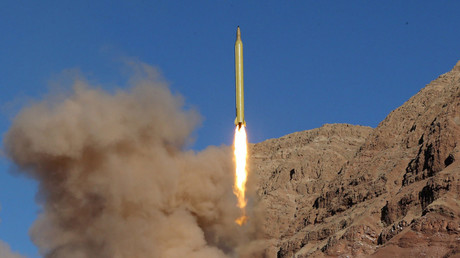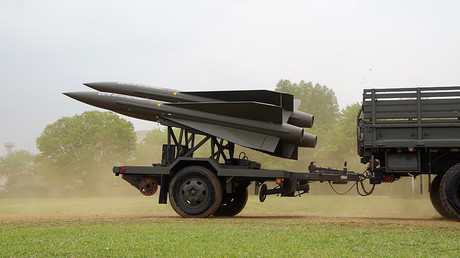The annual nuclear forces data, released by the Stockholm International Peace Research Institute (SIPRI) on Monday, assesses the nuclear arsenals of the nine countries which possess them – the US, Russia, the UK, France, China, India, Pakistan, Israel, and North Korea.
According to the data, all countries except North Korea possessed approximately 4,150 “operationally deployed warheads” combined at the beginning of 2017. Those are defined as warheads placed on missiles or located on bases with operational forces.
North Korea was not included in the deployed warheads data.
When warheads which are held in reserve or retired and awaiting dismantlement are considered, the total for all nine countries equals about 14,395 – a drop from 15,395 in early 2016.
The decrease is mainly due to Russia and the US, which account for nearly 93 percent of all nuclear weapons.
Both countries, according to the report, have reduced their inventories of strategic nuclear weapons under the bilateral Treaty on Measures for the Further Reduction and Limitation of Strategic Offensive Arms (New START), signed in 2010 by former US President Barack Obama and former Russian President Dmitry Medvedev.
However, the report notes that “the pace of their reductions remains slow,” and that modernization still remains a key goal for both countries.
“Both Russia and the USA have extensive and expensive nuclear modernization programs underway,” it states, noting that that the US plans to spend $400 billion in 2017-26 on maintaining and updating its nuclear forces.
“Some estimates suggest that the USA’s nuclear weapon modernization program may cost up to $1 trillion over the next 30 years.”
Other countries which possess smaller nuclear arsenals have also begun to deploy new nuclear weapon delivery systems or have announced their intention to do so, the report states.
China, for instance, has begun a long-term modernization program focused on making qualitative improvements to its nuclear arsenal, while India and Pakistan are expanding their stockpiles and developing their missile delivery capabilities.
“Despite the recent progress in international talks on a treaty banning nuclear weapons, long-term modernization programs are under way in all nine states,” said SIPRI senior researcher Shannon Kile.
He went on to state that “this suggests that none of these states will be prepared to give up their nuclear arsenals for the foreseeable future.”
The numbers provided in the data are approximate estimates as of January 2017. The figures represent the highest estimate when a range was given.
SIPRI is an independent institute which conducts research into conflict, armaments, arms control and disarmament. It provides data, analysis and recommendations to policymakers, researchers, media and the public, according to its website.
Source Article from https://www.rt.com/news/395142-nuclear-weapons-decreasing-modernized/?utm_source=rss&utm_medium=rss&utm_campaign=RSS
Related posts:
Views: 0
 RSS Feed
RSS Feed

















 July 3rd, 2017
July 3rd, 2017  Awake Goy
Awake Goy 

 Posted in
Posted in  Tags:
Tags: 
















